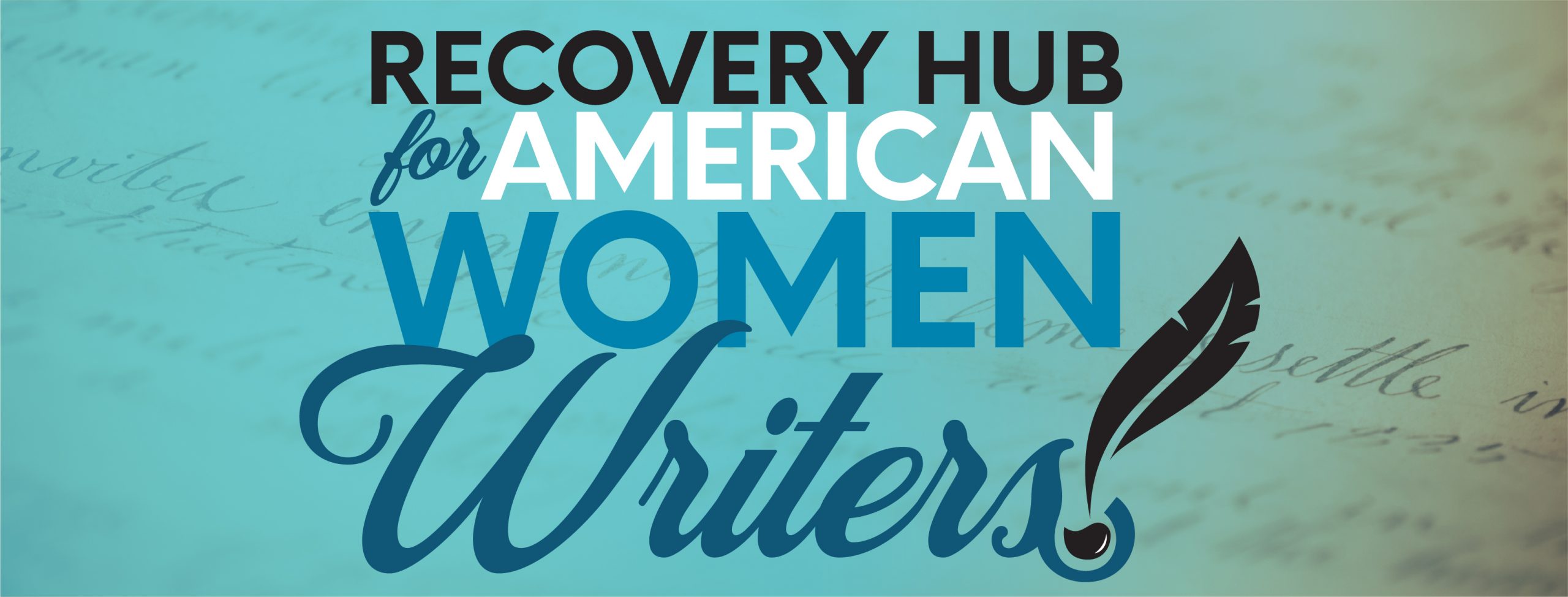The Recovery Hub for American Women Writers supports projects recovering the work of women writers by providing digital access to forgotten or neglected texts and/or extending them with network mapping, spatial analysis, multimedia storytelling, innovative contextualization, and the distant reading of massive datasets.
The Recovery Hub explores the intersecting relationships between feminist practice, content, and technical specifications with an awareness of the ways that the design and implementation of technology can exclude and objectify people. Though there are notable exceptions, the digital humanities is not often geared in content or design toward addressing, attracting, or educating women or people of color. Committed to cultivating a community of diverse scholars as well as inclusive project content, the Hub’s Advisory Board aims for at least 50% of its affiliated projects to recover Black, Indigenous, Latinx, Asian, and LGBTQIA+ stories, texts, experiences, and voices. The Hub is a mechanism for pooled funding bids and offers hands-on consultation to navigate project management, quality control, sustainability, and peer review in order to increase the quantity and quality of recovery projects focused on American women writers. The Hub fosters collaboration, mentorship, and community-building among women working in the digital humanities while seeking feminist and decolonial approaches to the creation, curation, design, sharing, and archiving of digital content. Read the Recovery Hub for American Women Writers full Mission Statement.
The Recovery Hub has undergone a year of planning, and we are now seeking volunteers who would like to pilot our services. We are currently hiring consultants and plan to begin offering consultation in May 2021. Because we will assess our process and methods during this pilot phase, all participants will be asked to provide feedback on their experiences with the Recovery Hub.
Seeking Support through Project Cultivation
Each year The Recovery Hub for American Women Writers will provide significant support for two digital projects in their early phases. Project cultivation can range from guidance through the process of textually encoding a small edition to more in-depth support, including but not limited to creating a project charter, formulating a research design, learning new technologies, searching for funding, and hosting on the Hub’s servers. Projects eligible for support include digital editions of letters, books, short fiction, and other texts as well as experimental projects that explore mapping, visualization, and other content-rich methods. The Hub’s editorial platform is designed to support scholars who want to encode their recovered documents using the best technical and sustainability standards but who have limited experience with the digital humanities. For examples of the range in project types and sizes the Hub supports, see Alex W. Black, Brigitte Fielder, and Johanna Ortner’s Just Teach One: Early African American Print edition of Frances Ellen Watkins (Harper)’s Forest Leaves, Kevin Mcmullen’s Fanny Fern in the New York Ledger, or Jordan Von Cannon’s Transatlantic Departures: Catharine Maria Sedgwick’s Travel’s Abroad.
Project cultivation support is available for researchers at any rank, with or without institutional affiliations. Recovery practitioners who are awarded project cultivation will also receive a $2,000 stipend to support their work on the project during the Hub’s pilot phase. Practitioners are expected to dedicate at least 80 hours of work to the project throughout the course of the year and attend meetings and training with the Hub’s staff. Complete the application no later than March 31, 2021, to have your project considered for pilot cultivation beginning April 1.
Requesting Peer Review
The Recovery Hub for American Women Writers peer reviews digital projects at various stages of completion. Projects are publicized by SSAWW, reviewed in Legacy, and included in a twice-yearly showcase on the Hub website. Peer-reviewed projects will also be featured in a pedagogical forum where educators at the K-12 and college level can access professionally produced teaching materials, including assignments, video interviews, and examples of student work. The Hub’s peer review process is grounded in feminist practice; reviewers use an open model that emphasizes one-on-one mentorship and encourages project directors to build upon and cite the work of other feminists. The Hub also values the iterative nature of digital projects by offering in-process peer review even at a project’s earliest stages. An article outlining the results of peer review will be published on the website with each project to model best practices and demonstrate the value of digital recovery work. Submit requests to be included in the pilot peer review process no later than March 31, 2021.

